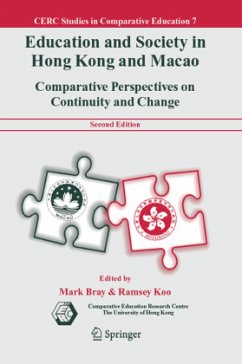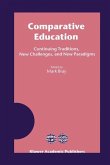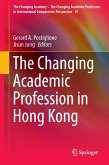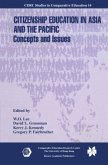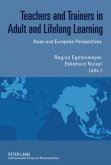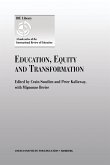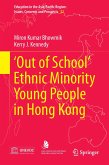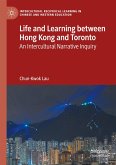Hong Kong and Macao have much in common. The dominant populations in both territories are Cantonese-speaking Chinese; both are small in area; both are urban societies; both have been colonies of European powers; and both have undergone political transition to reunification with China. Yet in education, for reasons that are analysed in this book, they are very different.
The patters of similarities and differences in the two territories make a fascinating basis for comparative study.
The overarching theme of the book, on continuity and change is particularly pertinent following the transition of the two societies of the postcolonial era.
This thoroughly-revised and expanded second edition builds on the widely-acclaimed first edition. The work has been recognised as a significant contribution to the broad field of comparative education as well as to study of the specific societies which are its main focus.
The patters of similarities and differences in the two territories make a fascinating basis for comparative study.
The overarching theme of the book, on continuity and change is particularly pertinent following the transition of the two societies of the postcolonial era.
This thoroughly-revised and expanded second edition builds on the widely-acclaimed first edition. The work has been recognised as a significant contribution to the broad field of comparative education as well as to study of the specific societies which are its main focus.
From the reviews of the second edition:
"The second edition of this book, published as Volume 7 of the highly reputed CERC Studies in Comparative Education, is remarkable ... . Its quality is ... demonstrated by the authors' efforts not only to update and intensify the descriptive substance of their chapters, but also to go more deeply into the historical, political and theoretical dimensions of their contextual analyses. ... It is needless to add that the list of bibliographical references has been considerably widened, which reinforces the recommendation ... ." (Wolfgang Mitter, Review of Education, Vol. 51, 2005)
"The second edition of this book, published as Volume 7 of the highly reputed CERC Studies in Comparative Education, is remarkable ... . Its quality is ... demonstrated by the authors' efforts not only to update and intensify the descriptive substance of their chapters, but also to go more deeply into the historical, political and theoretical dimensions of their contextual analyses. ... It is needless to add that the list of bibliographical references has been considerably widened, which reinforces the recommendation ... ." (Wolfgang Mitter, Review of Education, Vol. 51, 2005)

